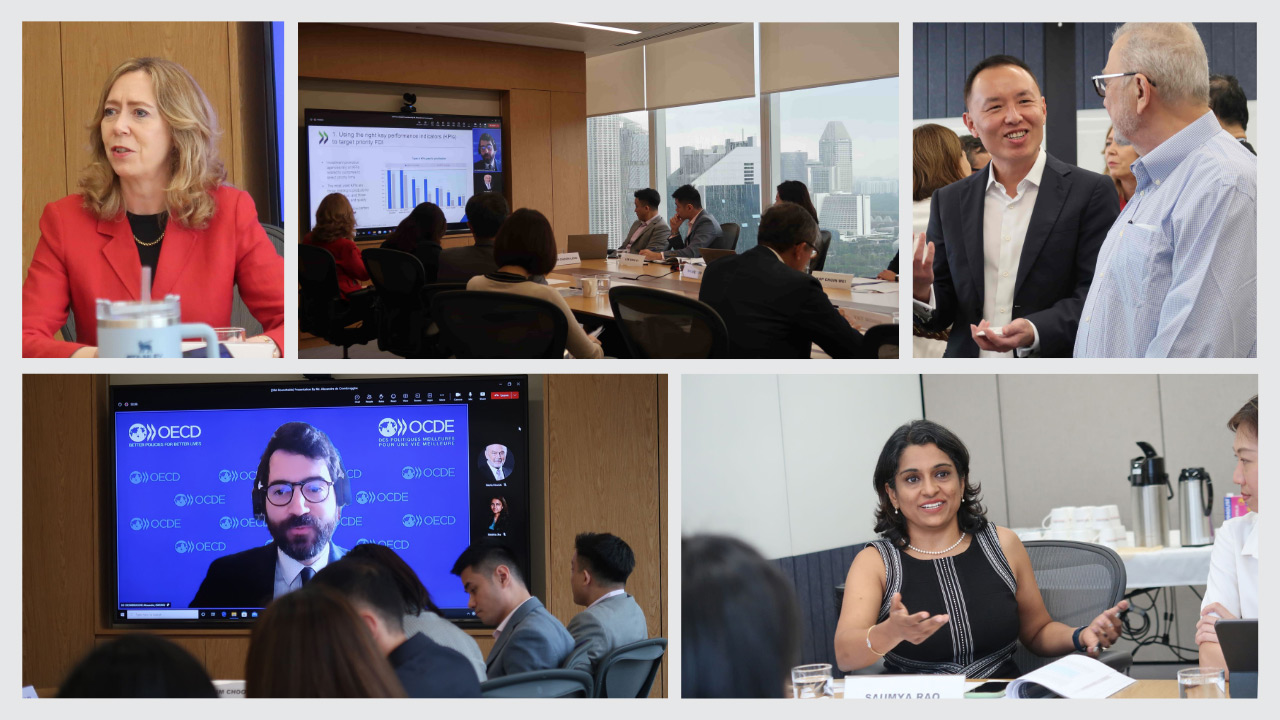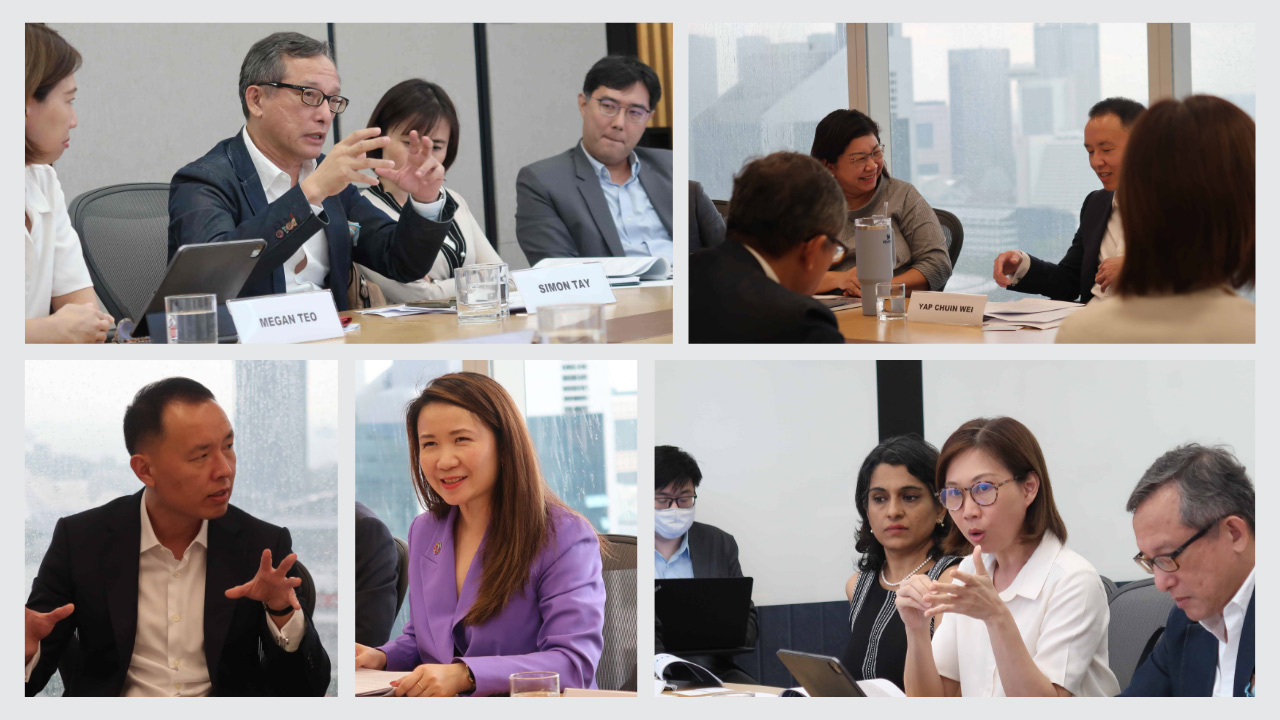Hinrich Foundation-SIIA Roundtable on sustainable investment in ASEAN
Published 18 April 2023
The Singapore Institute of International Affairs organized a roundtable dialogue on 31 March, 2023, in partnership with the Hinrich Foundation. The discussion was based on the Foundation-commissioned paper “Enabling Sustainable Investment in ASEAN” by the OECD.
The Hinrich Foundation-Singapore Institute of International Affairs roundtable discussed “Enabling Sustainable Investment in ASEAN”, a paper by the Organisation for Economic Co-operation and Development (OECD) and the Association of Southeast Asian Nations (ASEAN) Secretariat, co-commissioned by the Hinrich Foundation, the European Union (EU), and the government of Japan.
Here are some snapshots from the roundtable held in Hinrich Foundation's Singapore office.
- Capital is required to achieve the Paris Agreement’s goals. But removing restrictions on FDI is not a panacea. Frameworks are necessary to direct investment. Government incentives and subsidies are needed as a clear signal for both local and foreign capital, aligned with carbon pricing to send signals to the market, and green taxonomies to provide clarity.
-
Open lines of communication between the private sector and governments are necessary to attract investment. For example, Vietnam’s government and state-owned enterprises (SOEs) are accessible and willing to talk to all stakeholders, including small businesses. This is not necessarily the case in other ASEAN economies, or for businesses engaging with some government agencies within other ASEAN economies.
-
Stronger regulations may be needed in some areas, while deregulation is needed in others. Participants said stronger emissions regulations are necessary to promote the use of electric vehicles and alternative fuels, but also noted the dangers of overregulation and the need for deregulation in appropriate areas, to make it simpler for parties to invest.
-
ASEAN economies need to consider ways to manage climate litigation risk. Globally, climate litigation has increased in the past few years. Investors are reluctant to invest in supposedly sustainable projects unless they are very “dark green”, meaning with very clear environmental dividends. Aside from parties suing businesses over climate change, there is also a risk of investors suing a government if their existing investments are affected by tightening environmental regulations, such as on coal power.
-
ASEAN economies will need to consider ways to convince investors and the public that investment in “yellow” or “olive” transition areas – sustainability projects with lower ESG payoffs – are acceptable, if they result in genuine transformation. Fear of public sentiment or backlash limits investment in transition categories. Investors from developed economies are looking for “dark green” investments with no reputational risk, but this is difficult for ASEAN economies to guarantee.
-
Currently a lot of proposed renewable energy and energy transition projects in ASEAN are too costly or risky. This needs to be addressed before sustainable finance can be scaled up.
-
Until renewables are more stable, ASEAN will still need to rely on traditional energy sources, including coal assets. Nearly half of coal assets in ASEAN still have another 20 to 30 years of lifetime, and long-term power purchase agreements (PPAs) have been signed for those assets. There is still no effective mechanism to retire these coal assets.
-
While ASEAN is under pressure from developed markets to decarbonize and strengthen sustainability, there are signals that developed markets understand ASEAN’s situation. For instance, the European Union (EU) has been progressively tightening environmental regulations affecting trade in goods, most recently with the forthcoming EU deforestation regulation (EUDR), but Brussels has sent some signals that it is willing to work with ASEAN economies in ensuring that the EUDR is reasonably applied here.
-
ASEAN economies have significant potential in natural capital and nature-based solutions, which the OECD’s paper does not discuss in detail. Debt-for-nature swaps could be an effective avenue for conservation in ASEAN economies, linked to the development of carbon markets.
-
Economies need to identify green growth sectors or industries where they can be global leaders. For example, Sweden is specialising in green steel. It is important for ASEAN countries to select areas that fit their comparative advantage, create ecosystems around them, and provide investors with data on feasibility, timetables, and return on investment.
Other Hinrich Foundation-SIIA Roundtables:
© The Hinrich Foundation. See our website Terms and conditions for our copyright and reprint policy. All statements of fact and the views, conclusions and recommendations expressed in this publication are the sole responsibility of the author(s).


